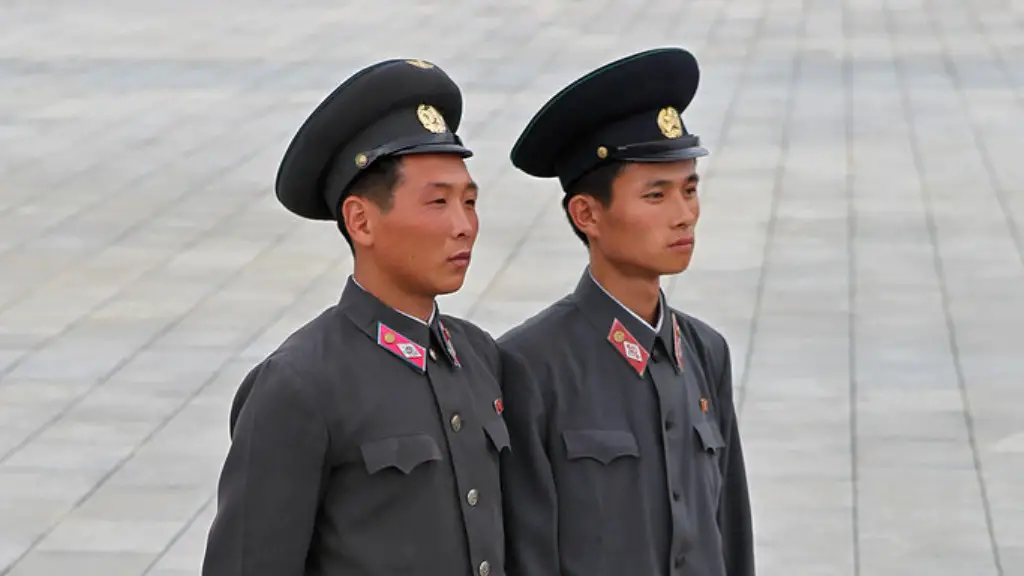Background Information
North Korea has had an ongoing ambition to become a nuclear power since the 1950s. In the mid-1970s the regime began to develop a nuclear program for the first time. For the next twenty year, reports surfaced of North Korean activity in the fields of nuclear research and technology, but it wasn’t until 2006 that the first atomic weapons tests were conducted by the country. Since then North Korea has conducted a number of further tests and is believed to have stockpiled as many as a dozen nuclear warheads.
The Range of North Korea’s Nuclear Weapons
North Korea has stated that it is intending to build nuclear weapons that will be capable of long-range travel and could thus pose a threat to the United States. The regime has conducted several long-range missile tests over the years, with the most recent one in July 2017, though it is unclear whether the missile shown in the test was a true intercontinental ballistic missile (ICBM) or not.
Experts agree that North Korea does not yet possess ICBMs with a range of 6,400 miles (10,300 kilometers), which is the minimum range required for a missile to reach the contiental US. While it is possible the regime is planning to develop such a missile, the sudden increase in speed and range of the North Korean missile program during the last two years has made this very unlikely.
The North Korean regime has stated that it intends to target the US mainland if necessary, however, there is no clear evidence that it has developed the technology to reach it. While there have been rumors of North Korea possessing missiles capable of reaching the US, none of these reports have been confirmed.
The Stability of North Korea’s Nuclear Program
Despite the various tests of ballistic missiles conducted by North Korea, it is not clear whether the regime is currently able to successfully launch them. It is believed that a number of missiles tested by North Korea have either failed or exploded, and that the technology used in these tests may not be reliable.
It is also unclear what capabilities North Korea has in terms of delivery systems for its nuclear weapons. The regime has not publicly demonstrated any vehicles that could transport a nuclear warhead, nor is it known what kind of guidance systems North Korea has in place for its missiles.
Additionally, there are questions regarding the safety and security of North Korea’s nuclear program. The country is known to have a poor record of weapon safety and control, and there is a very real risk that a nuclear weapon could be launched or detonated without the regime’s knowledge or control.
The Impact of North Korea’s Nuclear Program on Other Countries
The North Korean nuclear program has had a significant impact on the stability of the region, as well as the global community. The North Korean regime has become increasingly belligerent in recent years, and its missile tests have raised concerns about the potential for nuclear war in the region.
Additionally, North Korea’s nuclear program has alarmed other countries in the region, such as South Korea and Japan, who are also potential targets for North Korea’s missiles. The regime’s provocative behavior has also drawn criticism from China, which has traditionally been a close ally of North Korea, but has increasingly condemned North Korea’s nuclear ambitions.
Implications for the United States
The United States has long been opposed to North Korea’s nuclear program, viewing it as a threat to international security and a barrier to progress within the region. The US has taken a hard line against the regime, conducting numerous economic sanctions and diplomatic efforts to impose greater pressure on the regime.
The US has also deployed a number of military assets to the region in order to deter North Korea from pursuing any further nuclear activity. This includes the deployment of a Terminal High Altitude Area Defense (THAAD) system in South Korea, as well as the deployment of additional US naval forces in the area.
However, despite these efforts, the US is still not entirely certain about the extent of North Korea’s nuclear capabilities. As such, the possibility remains that North Korea could possess the means to launch a nuclear attack against the US, should the situation escalate.
The Effectiveness of Sanctions
In response to North Korea’s nuclear program, the United Nations has imposed a range of economic sanctions on the regime. While these sanctions have had some effect in slowing down the development of North Korea’s nuclear program, experts are cautious about the long-term effectiveness of these measures.
Sanctions have had little to no effect on the regime’s ability to acquire nuclear materials, as the country is thought to have stockpiled enough fissile material to produce as many as 30 nuclear weapons. Additionally, the regime is believed to have access to a number of overseas networks which it can use to illicitly acquire the necessary materials for its nuclear program.
Further, analysts have questioned the effectiveness of sanctions as a tool to deter the regime from pursuing a nuclear strike against the US, as the economic pressure placed on the country may not be sufficient to prevent it from taking such an extreme step.
The International Response
In response to the increasing threat posed by North Korea’s nuclear program, a number of countries have advocated for more stringent measures to be taken against the regime. The United States has proposed the deployment of a full naval blockade of North Korea, in order to prevent the regime from acquiring any more nuclear materials.
However, other countries, such as South Korea and Japan, have raised concerns about the effectiveness of such measures, raising fears of a potential military confrontation between the US and North Korea. As such, other countries have proposed alternative measures, such as increasing economic pressure on the regime through increasing economic sanctions, as well as increasing diplomatic engagement with the regime.
Despite the various proposals, there is still little consensus on how to best address the situation and ultimately, much of the international response can be described as tentative and uncertain.
The Role of China
China has had a complicated relationship with North Korea over the years, but in recent years it has become increasingly apparent that Beijing is deeply concerned with the increasing nuclear threat posed by the regime.
China has been the main source of aid and support for North Korea, providing the regime with vital resources that are necessary for its survival. As such, Beijing often finds itself in a difficult diplomatic position, as it must balance its own interests and domestic stability with its need to support North Korea.
In response to North Korea’s nuclear program, Beijing has pushed for the implementation of tougher economic sanctions against the regime and has emphasized the need for a diplomatic solution to the situation. However, there are some analysts who suggest that China’s influence over North Korea is limited, as the regime appears to be unwilling to make any concessions on its nuclear program.
The Outlook for North Korea’s Nuclear Program
There is no clear answer as to what the future holds for North Korea’s nuclear program, though it is certain that the issue will continue to cause significant tensions in the region. It is possible that the regime could continue to develop its nuclear capabilities, if the economic and diplomatic pressure placed on it is not sufficient to convince it to abandon its ambitions.
It is also likely that North Korea will continue to pose a threat to the US mainland, despite the lack of evidence that it possesses any missiles that could reach the US at this time. The possibility of a nuclear attack against the US remains a real threat, and the international community must remain vigilant in monitoring the situation and taking steps to ensure the safety and security of the entire world.


